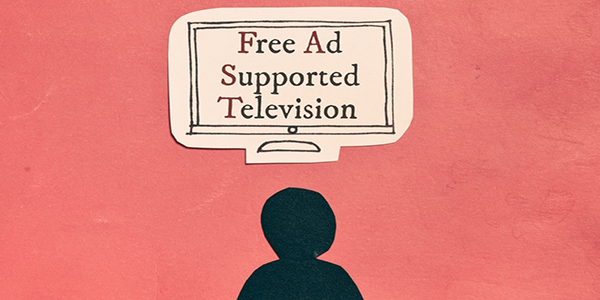 |
||||||||||||
|
||||||||||||
| Is New Media an Endangered Species? |
 |
| Is New Media an Endangered Species? AdMonsters writer, Susie Stulz, has been reading Traffic, Ben Smith’s book on the start of Gawker, HuffPost, and BuzzFeed. The 2000s were heady days for “new media.” Its founders, ambitious and audacious in equal measure, figured out early on that sites that attract the most traffic win. Scorning traditional media, they invented listicles, published racy content (some of which was highly unfortunate), and figured out how to get Google to point traffic to their sites. In the process, they “dragged media into the digital age.” New media organizations globbed onto social media, and in the early years, it delivered the traffic those owners craved. Unfortunately, that traffic didn’t always generate a profit. This past Monday, VICE Media, announced that it has filed for Chapter 11 bankruptcy. Struggling under a mountain of debt, the company will be sold to Fortress Investment Group and Soros Fund Management for $225 million. This follows on the heels of BuzzFeed shuttering its news division. BuzzFeed may have started with listicles, but it grew into serious journalism. In 2021 the publication won a Pulitzer for reporting on China’s incarceration of hundreds of thousands of Uighurs, Kazakhs, and other Muslim minorities. VICE was founded originally to cover music, art, trends, and stories about the drug culture that other publications wouldn’t print. It’s not afraid to cover the most challenging issues facing America and the world. |
| Although VICE Media anticipates emerging from bankruptcy, the financial troubles plaguing VICE and BuzzFeed are a worrisome trend for other media companies that revolutionized the publishing world. In its reporting, The New York Times called Disney’s investment in VICE one of the worst bets in publishing. Though it may not have turned the profits anticipated, VICE News has certainly turned out amazing content, such as in-depth videos on topics like the state of feminism in the US today. For now, VICE Media fans won't need to worry about losing their favorite VICE brands. The press release announcing the bankruptcy stated that all of the brand's multi-platform media brands, including VICE, VICE News, VICE TV, VICE Studios, Pulse Films, Virtue, Refinery29, and i-D, will operate as usual. Unfortunately, we seem to have lost BuzzFeed News for good. Feeding off the pioneering digital strategies of publishers like VICE and Buzzfeed, "old media" giants like The New York Times have managed to put together content strategies that engage consumers across a wide range of topics, making subscription sales a critical part of their revenue stream. With innovators like VICE and Buzzfeed facing existential issues with financial viability, where will the "new" in new media come from going forward? |
|
| Senate Hearing Weighs the Cost of Generative AI Regulations |
 |
| Sen. Richard Blumenthal started the generative AI hearing better than any stunt queen could by playing an AI-generated audio recording of himself talking about the risks of AI and the need to regulate it. The Infamous Recording: The clip stemmed from recordings of Blumenthal's previous floor speeches, and ChatGPT wrote the script based on how he might open a hearing on AI regulation. It's a stunt, by all means, but a well-executed one.
The Key Players: IBM Chief Privacy and Trust Officer Christina Montgomery and NYU professor Gary Marcus joined Altman to testify.
|
| The rapid advancement of AI has many industries and governments concerned. Just a few weeks ago, Top AI CEOs convened at the White House to discuss the future of AI regulation. Open AI's Sam Altman was amongst the guests. Generative AI has swiftly infiltrated jobs and sometimes even derailed a company's business growth. For instance, Chegg's shares fell 49% due to ChatGPT. The CEO, Dan Rosensweig, realized that more students were beginning to use ChatGPT to answer questions instead of Cheggs study tools because the option is free. Misinformation: While the students may prefer the free option, generative AI outputs are not always accurate or up-to-date. Open AI even offers a disclaimer on its website that backs this claim. It reads:
The Lawmakers: The senate lawmakers asserted their list of concerns. Most of them do not contradict major industry worries, but the question remains of who are the right regulators and how the process should run. Their concerns are as follows:
|
| Telly Launches a Rebrand of Ad Supported Software |
 |
| Platforms have offered free ad-supported streaming services for quite some time. For example, Spotify and YouTube allow consumers to use their media for free, with ads interspersed throughout the experience. But now, Telly is offering an ad-supported tier with a twist. “You get a TV; You get a TV!”: Telly, launched by Pluto TV’s co-founder Ilya Pozin, decided to give away half a million 55-inch 4K televisions. The caveat is that recipients must install a separate second display underneath that constantly showcases ads and other information.
The fine print on the device is expansive, and the terms of the deal are subject to change at any time — if the practice is unsuccessful, for example. |
| The CTV and OTT space has changed drastically over the last couple of years as streaming has overtaken the popularity of cable. The transition also changed the advertising practices of television. For a long time, many streaming services stayed away from ad-tiered options. Netflix notoriously said they would never offer ad-tiered subscriptions, and we all know that statement didn’t age well. Of course, this is no shade to the streaming giant. It shows that all platforms want to balance revenue, audience targeting, and privacy concerns. CTV has become a lucrative market, but privacy concerns are also vast. IAB even created Project Crosswalk to address some of these concerns. What are the problems?
Privacy concerns: Journalist Shoshana Wodisnky raised some privacy concerns about Telly TV. According to its privacy policy, the tech collects data about what you view, where you’re located, what you watch, and what could be inferred about you from that information. Meanwhile, their child data collection standards raised eyebrows:
Like all new tech, new kinks aren’t a surprise, but this is a pretty big red flag to miss. Also, some Telly owners may have concerns if the Telly devices are ACR-capable, which helps advertisers measure viewership and performance, as well as personalize content recommendations but also gives off the creep factor to some users. Telly TV is an interesting concept. Will it solve the bulk of CTV concerns? Probably not. But it shows that the industry is looking for solutions. |
| Around the Water Cooler |
| Google Forces EU Publishers to Work with Consent Vendors If Google is going to do one thing, it will show its dominance. They issued a new privacy policy that requires European-based publishers that utilize its monetization tools to work with consent management platforms that comply with their privacy policies. (Digiday) YouTube Updates Their Data Clean Room Data Clean Rooms are a prominent solution many think will help publishers post third-party cookie deprecation. Youtube announced the addition of VideoAmp to its Data Clean Room, allowing advertisers to use its dataset in a unified platform, incorporating YouTube across connected TV, desktop, mobile, and linear TV. (Ad Age) Meta Warns Australia’s Ad Targeting Policies Could Prove Dire Australia’s federal government plans to allow consumers to opt out of all targeted advertising under their new privacy reforms. Meta warns that this will cause increased subscription fees. (The Guardian) |
 |
|||||||
|
|||||||
 |
|||||||
|
|||||||
 |
|||||||
|








